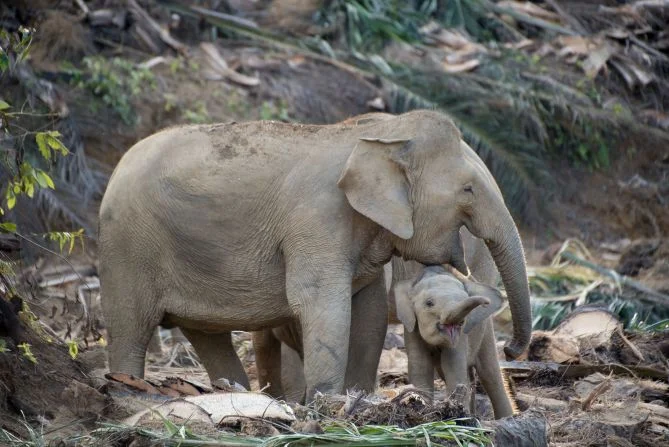
Saving The World’s Smallest Elephants: One Woman’s Mission In Borneo
In the lush jungles of Borneo, a devastating crisis looms for one of the world's smallest species of elephant: the Bornean elephant. Measured at around nine feet tall, this endangered subspecies is confronted by increasingly fragmented habitats and human conflicts. Malaysian conservationist Dr. Farina Othman has taken it upon herself to save these magnificent creatures through innovative strategies aimed at restoring their environment and fostering coexistence with local agriculture.

With fewer than 1,000 Bornean elephants remaining, their survival hangs in the balance amid the relentless expansion of palm oil plantations that have stripped away 60% of their natural forest habitat over the last four decades. Conservationists, including Dr. Othman, are fighting back with the establishment of wildlife corridors—strips of native forest that weave through agricultural lands, allowing elephants to traverse their fragmented habitats safely.
Dr. Othman's mission gained critical momentum when she was awarded the prestigious Whitley Award, which comes with significant funding to bolster her conservation efforts. Her organization, Seratu Aatai, has been pivotal in fostering collaboration with palm oil plantation owners, many of whom initially viewed elephants as threats to their crops. However, through dialogue and education, she has found common ground with these farmers. “As planters, they know the necessity of preserving biodiversity,” Othman explained, highlighting a crucial shift in perception toward these gentle giants.

This partnership has led to the beneficial planting of native trees alongside palm oil crops, creating what Othman calls “food chests” that appeal to elephants and encourage safe passage through the corridors. This initiative significantly reduces the chances of human-elephant conflicts, which, in the past decade alone, resulted in the deaths of 131 elephants due to human-related causes.
Despite the challenges ahead, Dr. Othman's dedication remains unwavering. She fears potential behavioral changes in elephants due to increased human interaction but is optimistic that collaborative efforts will foster mutual respect and understanding. "They can read your heart and what is in your mind," she noted, emphasizing the emotional connections that can be formed between the species.
As the world's smallest elephants face extinction, Dr. Farina Othman's innovative approach offers hope not just for the future of the Bornean elephants, but for conservation efforts globally. Can community engagement and modern conservation techniques save these gentle giants? It's a question we should all ponder as we contemplate the intricate relationships between humans and wildlife.
What are your thoughts on the challenges faced by the Bornean elephants? Share your opinions in the comments below!